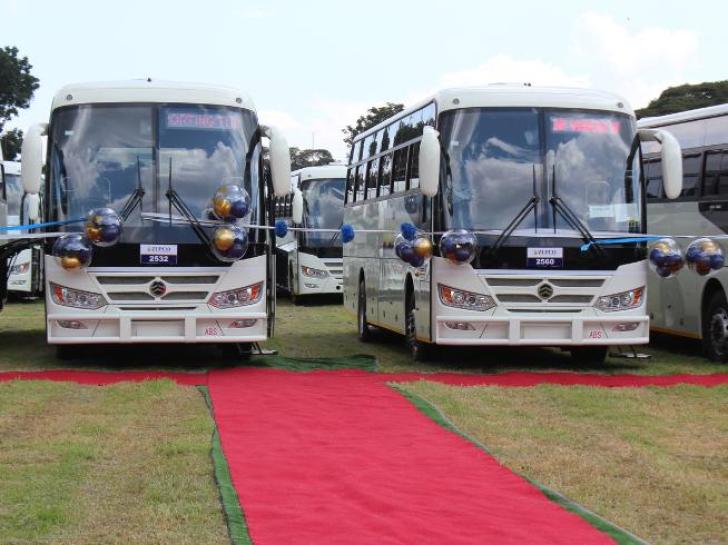Opinion / Columnist
Where are the once touted Zupco buses?
6 hrs ago | Views

As members of the fourth estate, our role is clear: to hold power to account and to speak truth to those entrusted with public resources. Remaining silent in the face of Zimbabwe's ongoing transport crisis would be both undemocratic and unpatriotic. We owe the people relentless scrutiny and probing questions—especially when promises remain unfulfilled and public money disappears without explanation.
During the 2020 outbreak of the Covid-19 pandemic, President Emmerson Mnangagwa's government announced a bold plan to revive the state-owned Zimbabwe United Passenger Company (ZUPCO). The government embarked on a massive purchasing spree, acquiring over 1,000 buses from Belarus, a country that has become Zimbabwe's new, albeit "fair-weather," friend. More than 1,000 buses were reportedly purchased and commissioned between 2019 and 2023, with plans to buy an additional 550 buses advertised as recently as December 2023.
Yet, here we are in mid-2025, and ZUPCO buses are scarcely visible anywhere—whether in the streets of Harare, Bulawayo, or rural towns. The premium Harare-Bulawayo bus service has been discontinued. The question burning on every commuter's lips is: Where are these buses? Have they been sidelined, neglected, or worse, stolen? Why have they seemingly vanished?
In their absence, private transporters dominate the market, charging exorbitant fares and offering unreliable services. The worsening transport crisis is no accident—it is a consequence of mismanagement, corruption, and a failure to protect public assets.
We demand clear answers from the government and ZUPCO's parent company, the Mutapa Investment Fund. These buses were bought with taxpayers' money. The public deserves to know whether these vehicles have been mothballed in depots, or if they have been diverted for personal use by politically connected individuals. Such suspicions are far from baseless given revelations from the 2023 Auditor-General's report, which exposed ZUPCO's failure to account for ZW$3.4 billion in urban revenue, signaling potential fraud and systemic corruption.
This is not just a scandal of missing buses—it is a scandal of broken promises and betrayed trust. Zimbabweans endure daily hardships, navigating a public transport system that is unreliable and unaffordable. Meanwhile, funds that could have transformed lives have seemingly evaporated into bureaucratic darkness.
The culture of impunity surrounding this crisis is deeply dangerous. It undermines public confidence in government institutions and weakens the very fabric of Zimbabwe's democracy.
We will not stop asking these hard questions. Zimbabweans deserve transparency, accountability, and leadership that places public welfare above private enrichment. They deserve a transport system that functions and meets their needs—not empty promises and phantom buses.
We cannot keep quiet. Not now. Not ever.
During the 2020 outbreak of the Covid-19 pandemic, President Emmerson Mnangagwa's government announced a bold plan to revive the state-owned Zimbabwe United Passenger Company (ZUPCO). The government embarked on a massive purchasing spree, acquiring over 1,000 buses from Belarus, a country that has become Zimbabwe's new, albeit "fair-weather," friend. More than 1,000 buses were reportedly purchased and commissioned between 2019 and 2023, with plans to buy an additional 550 buses advertised as recently as December 2023.
Yet, here we are in mid-2025, and ZUPCO buses are scarcely visible anywhere—whether in the streets of Harare, Bulawayo, or rural towns. The premium Harare-Bulawayo bus service has been discontinued. The question burning on every commuter's lips is: Where are these buses? Have they been sidelined, neglected, or worse, stolen? Why have they seemingly vanished?
In their absence, private transporters dominate the market, charging exorbitant fares and offering unreliable services. The worsening transport crisis is no accident—it is a consequence of mismanagement, corruption, and a failure to protect public assets.
We demand clear answers from the government and ZUPCO's parent company, the Mutapa Investment Fund. These buses were bought with taxpayers' money. The public deserves to know whether these vehicles have been mothballed in depots, or if they have been diverted for personal use by politically connected individuals. Such suspicions are far from baseless given revelations from the 2023 Auditor-General's report, which exposed ZUPCO's failure to account for ZW$3.4 billion in urban revenue, signaling potential fraud and systemic corruption.
This is not just a scandal of missing buses—it is a scandal of broken promises and betrayed trust. Zimbabweans endure daily hardships, navigating a public transport system that is unreliable and unaffordable. Meanwhile, funds that could have transformed lives have seemingly evaporated into bureaucratic darkness.
The culture of impunity surrounding this crisis is deeply dangerous. It undermines public confidence in government institutions and weakens the very fabric of Zimbabwe's democracy.
We will not stop asking these hard questions. Zimbabweans deserve transparency, accountability, and leadership that places public welfare above private enrichment. They deserve a transport system that functions and meets their needs—not empty promises and phantom buses.
We cannot keep quiet. Not now. Not ever.
Source - online
All articles and letters published on Bulawayo24 have been independently written by members of Bulawayo24's community. The views of users published on Bulawayo24 are therefore their own and do not necessarily represent the views of Bulawayo24. Bulawayo24 editors also reserve the right to edit or delete any and all comments received.

























